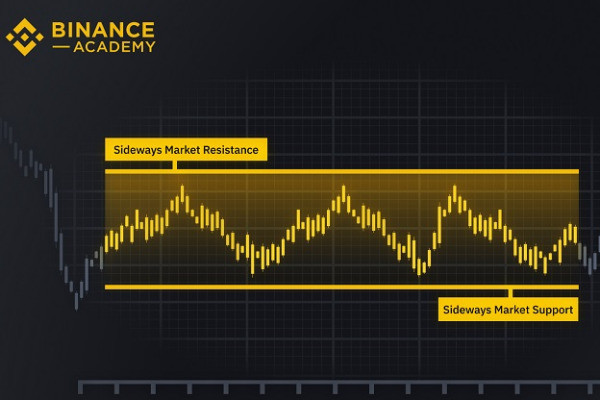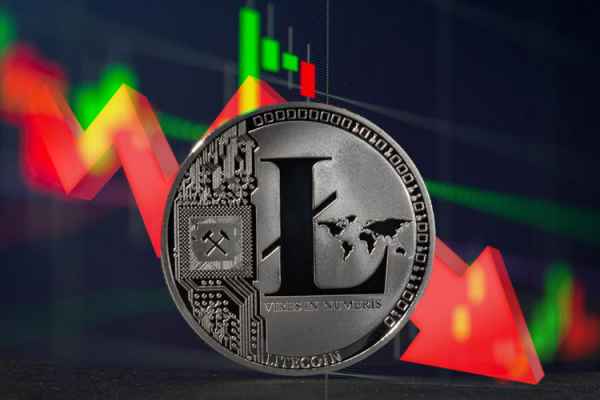Cryptocurrency trading is indeed lucrative. But the risks of being scammed and involved in illegal practices have demanded the importance of crypto exchange license.

Generally speaking, most crypto traders are interested in investing their money in crypto because it promises mouthwatering returns and high privacy due to its anonymity. Blockchain technology also offers the advantage of safe transactions with its decentralized nature.
However, we should also acknowledge that the very same reasons that make crypto attractive are also what make investors cautious. Unlike fiat currency, Bitcoin and other cryptocurrencies are prone to cyber crimes like hacking and fraud.
Hackers can gain access to an individual's crypto wallet by breaking into the server of a crypto exchange to steal their holdings. According to the US Attorney General's cyber-digital task force 2020 report, there are at least three areas of concern regarding cryptocurrency use:
- Direct use of cryptocurrency to commit crimes and finance terrorism.
- Using cryptocurrency to launder money and evade taxes.
- Cryptocurrency theft and investment fraud.
One of the most widely known examples of how people can use cryptocurrency to commit crimes is the dark web marketplace Silk Road. The site was live from 2011 to 2013 as one of the central marketplaces for drugs, forged documents, ransomware, and other illegal products.
It was designed to use Bitcoin as the payment method so the participants could hide their identities. The Silk Road founder Ross Ulbricht was convicted in 2015 for several serious charges.
Not only that, a massive hack breakout happened in 2014 to the Mount Gox crypto exchange. Many investors lost hundreds of millions of dollars of Bitcoin because of it.
That is why storing your coins in a safe place is crucial. There are many crypto exchanges and wallet providers today, and it can be pretty hard to separate the safe ones from the rest. As a result, there is a need to set safety standards and regulate these companies to protect clients from illegal activities such as scams, money laundering, etc. This is where the crypto license comes in.
A crypto license is probably the easiest way to spot a reliable exchange. If you're unsure which broker is the best, at least you must check the legality by reviewing its license. The license is usually issued by a respected authority of the country or region where the exchange is based, so research this beforehand.
That being said, if you're planning to start a crypto exchange business, it is vital to understand the legalization process for the company. While most regulations are relatively new, and each jurisdiction typically uses different approaches or guidelines to their licenses, the process may be slightly more challenging than legalizing traditional exchanges.
Therefore, the safest option would be to seek experts' advice on legal and financial terms. Choose a trusted and well-experienced team to take care of your legalization process.
Crypto Licenses Across the World
The expansion of cryptocurrency has reached almost every part of the world at this point, so there are many big and small crypto businesses spread all across the globe.
Different approaches and regulations are used in many countries to cope with such popularity. Some try to take complete control over the industry, while others even try to forbid crypto exchanges. Here are some of the noteworthy examples:
Estonia
Estonia is known as one of the pioneers to have introduced legalization for blockchain and crypto-related businesses. The country is considered good for facilitating cryptocurrency regulation compared to other EU member states.
In Estonia, every crypto exchange must obtain two financial licenses, namely the Virtual Currency Exchange Service License and the Virtual Currency Wallet Service License. Recently, these licenses were united into one.
To obtain an Estonian license, the exchange must adhere to Estonian crypto exchange rules and have a registered branch in the country.
The company should also follow strict reporting and essential procedures such as Know Your Customer (KYC). As a side note, even though licensed crypto exchanges are deemed legitimate in Estonia, cryptocurrencies are not considered legal tender yet (like in the UK).
United States
In the US, crypto trading is regulated at federal and state levels. As for now, the regulations regarding cryptocurrency are mainly based on the Bank Secrecy Act (BSA) of 1970 and the Patriot Act.
Crypto assets considered eligible must comply with the Securities and Exchange Commission (SEC) under the US securities law. The exchange should also comply with other US federal regulations to operate.
See Also:
Australia
Australia is another progressive country when it comes to crypto regulation. The country concluded that crypto trading and other digital assets are now eligible for regulation in Australia's existing financial services regulatory regime.
All crypto exchanges in Australia must obtain a license issued by the Australian Securities and Investment Commission (ASIC). AML/CTF imposed on the exchanges should also be regulated under the Australian Transaction Reports and Analysis Centre (AUSTRAC).
The United Kingdom
There have been significant changes in the UK regarding cryptocurrencies. On January 6, 2021, the country banned promoting crypto assets like crypto derivatives to individuals.
That means companies cannot offer crypto derivatives to individual traders within the UK. However, companies can still engage in crypto exchange in the UK if they follow all the business conduct and operations guidelines.
Japan
Japan is another crypto-friendly country with sophisticated regulations and customer protection. The country started regulating cryptocurrency as early as 2017, which is quite early compared to others.
Crypto exchanges are entirely legal in Japan as long as the exchange is registered as a Crypto Asset Exchange Service Provider under the authority of the Japanese Financial Services Agency (FSA).
The legalization process is rigorous and can take as much as six months. During the process, the company must keep records, have customers' due diligence procedures and security measures, follow counter-terrorism funding rules and anti-money laundering, and hold at least 10 million yen in capital.
The Bottom Line
While there is a massive opportunity in crypto trading and other crypto-related businesses, one must be aware that significant risks and regulatory issues can't be underestimated. Every trader should know that crypto exchanges are vulnerable to hacking and becoming targets of various criminal activities. These security issues have led to significant losses for investors who have had their coins stolen.
That is why regulations are crucial to protect clients and ensure the exchange complies with the rules. At the moment, regulations regarding cryptocurrencies are still pretty limited. Many crypto exchange owners still find it hard to understand the legalization process. It is considered complicated and tends to consume a lot of time compared to the regulations for traditional exchanges.

 Dedicated FREE FOREX VPS
Dedicated FREE FOREX VPS Free FOREX Virtual Private Server
Free FOREX Virtual Private Server MT4 Demo Contest, Get $500
MT4 Demo Contest, Get $500 Sign Up for an Account, Claim 60% Deposit Bonus
Sign Up for an Account, Claim 60% Deposit Bonus Free MT4/MT5 VPS 2024
Free MT4/MT5 VPS 2024 Send E-mail and Get Free Merchandise
Send E-mail and Get Free Merchandise $1K Refer a Friend Bonus for Pepperstone Pro clients
$1K Refer a Friend Bonus for Pepperstone Pro clients Maximize Your Earnings with 100% Deposit bonus
Maximize Your Earnings with 100% Deposit bonus Trade to Win, $5,000 Monthly Demo Contest
Trade to Win, $5,000 Monthly Demo Contest Claim 30% + 15% Deposit Bonus from LiteFinance
Claim 30% + 15% Deposit Bonus from LiteFinance






 Bitcoin
Bitcoin Ethereum
Ethereum Tether
Tether BNB
BNB Solana
Solana USDC
USDC XRP
XRP Dogecoin
Dogecoin Toncoin
Toncoin Cardano
Cardano